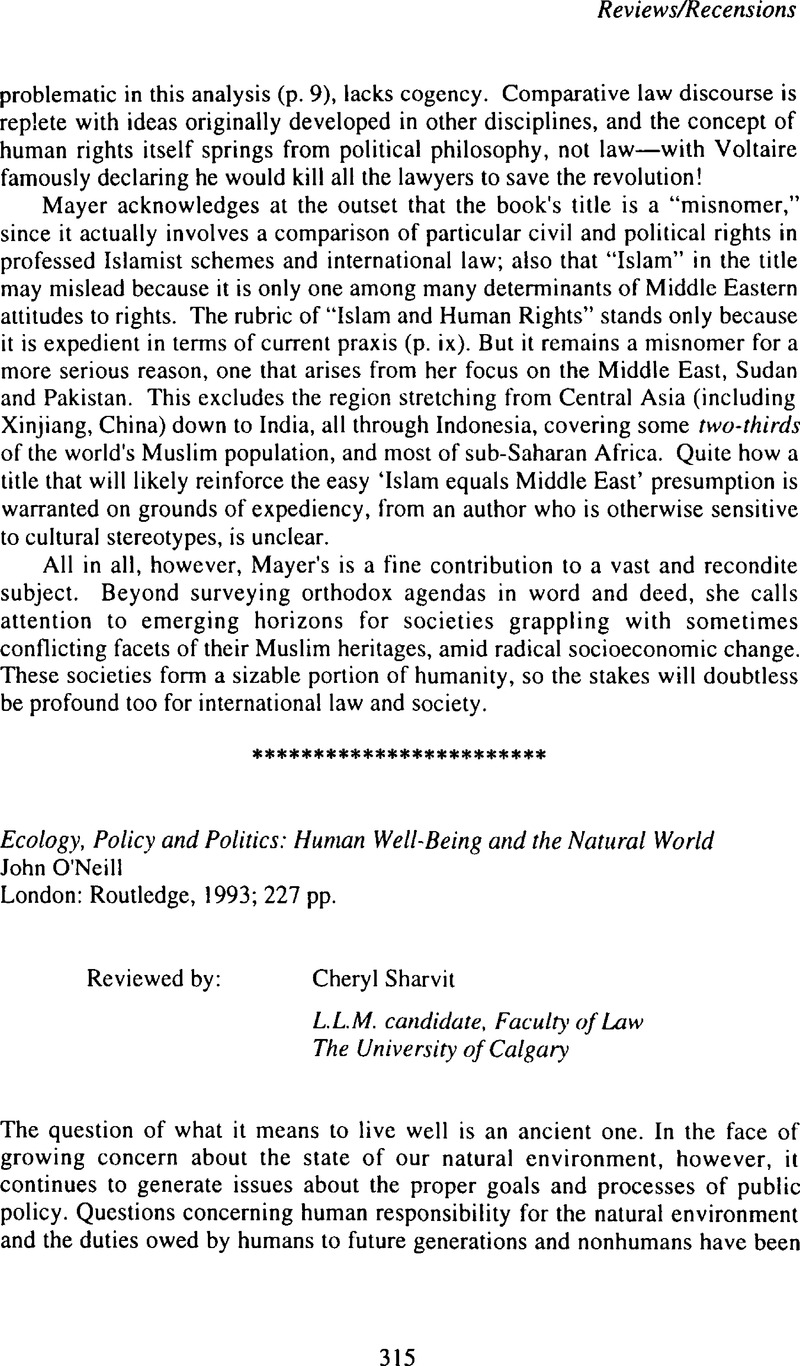No CrossRef data available.
Published online by Cambridge University Press: 18 July 2014

1. Some background knowledge of Aristotle's Politics and Nicomachean Ethics may assist the reader in following O'Neill's arguments. A secondary source such as Russell, Bertrand, History of Western Philosophy and its Connection with Politics and Social Circumstances from the Earliest Times to the Present Day (London: George Allen & Unwin, 1961) at c. 20–21 Google Scholar, “Aristotle”s Ethics,” and “Aristotle's Politics”, would suffice.
2. Dobson, Andrew, Green Political Thought, 2d ed. (London: Routledge, 1995) at 61.Google Scholar
3. Ibid. at 62.
4. Ibid. at 65–66.
5. Mark Sagoff explains the market-based approach to decision-making as follows: “All preferences … may lead a person to action. Real and hypothetical markets, at least in principle, can measure the strength or intensity of these preferences in terms of willingness to pay, and thus, at least in theory, markets can rank these preferences in a quantitative way.” Sagoff, Mark, The Economy of the Earth (Cambridge: Cambridge University Press, 1988) at 9.Google Scholar
6. See Russell, supra note 1 at 192. Aristotle's theory, according to Russell, was that the contemplative life is the best life because “reason, more than anything else, is man.”
7. Sagoff, supra note 5 at 185.
8. Though beyond the scope of this review, it should be noted that O'Neill disagrees with Habermas' theory of rational discourse at 192, note 29. For Habermas' view, see Habermas, Jurgen, Between Facts and Norms—Law and Discourse: Bridging the Gap Between Democracy and Rights, trans. Rehg, William (Cambridge, MA: MIT Press, 1996)Google Scholar, and Habermas, Jürgen, “Postscript to Faktizitat und Geltung” (1994) 20 Philosophy and Social Criticism 135.CrossRefGoogle Scholar Generally, while Habermas seems to be concerned with the legitimacy of the law founded upon agreement, O'Neill is concerned with arriving at objective truths through rational discourse.
9. Sagoff, supra note 5 at 9.
10. According to Sagoff, ibid. at 27, an individual has two preference orders: “As consumers, we act to acquire what we want for ourselves individually; each of us follows his or her conception of the good life. As citizens, however, we may deliberate over and then seek to achieve together a conception of the good society.”
11. Ibid. at 130.
12. Dobson, supra note 2 at 15, 30.
13. Sagoff, supra note 5 at 8.
14. Daly, Herman E. & Cobb, John B., For the Common Good: Redirecting the Economy Toward Community, the Environment and a Sustainable Future (Boston: Beacon Press, 1989) at 142.Google Scholar